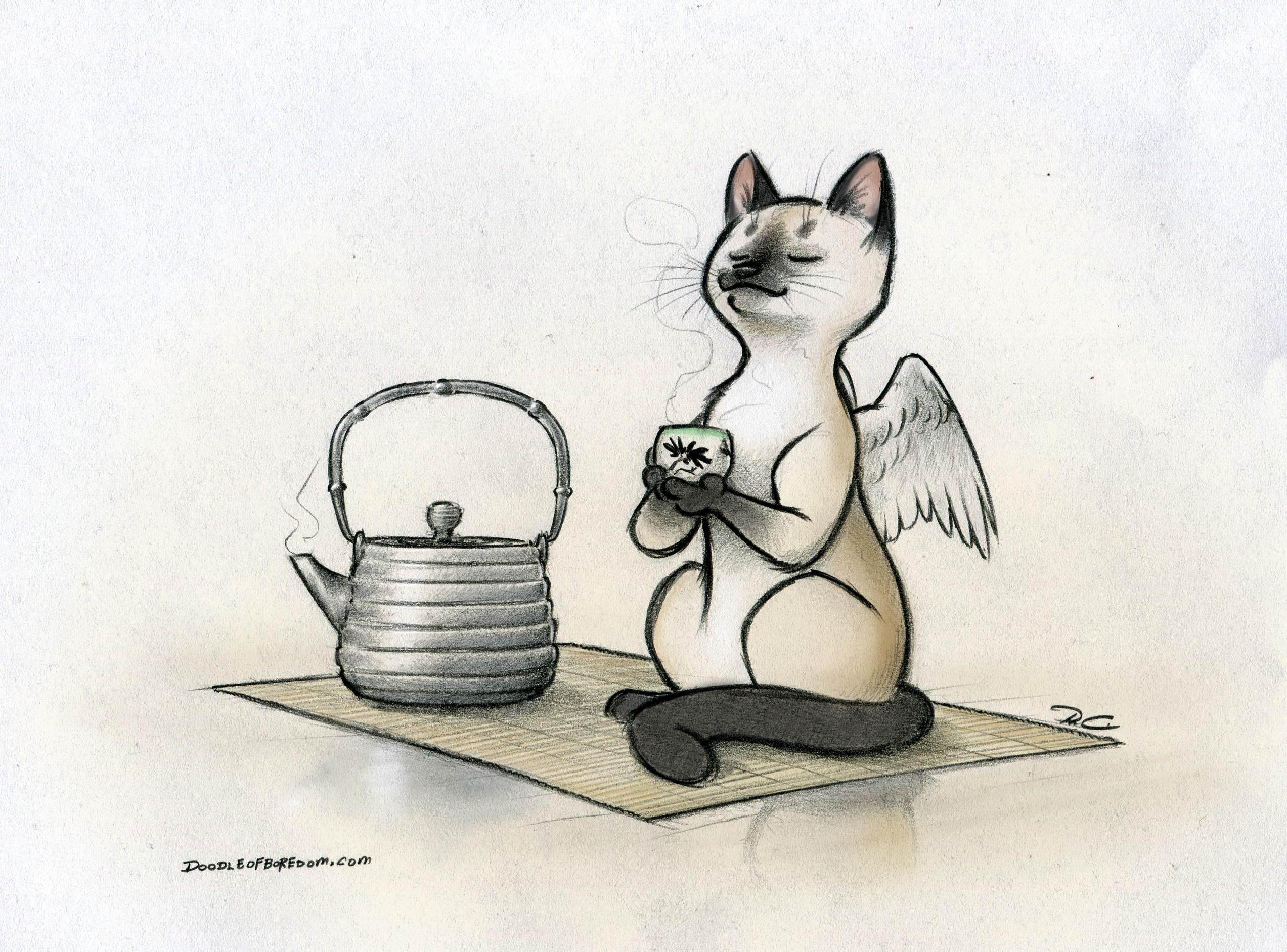Caffeine has become a huge part of Western culture. People make clothing about it, food infused with it, and (not surprisingly) some become addicted to it. That said, caffeine is naturally a part of a lot of things, including coffee, chocolate, pop, and tea. As tea is included in this list, I thought today would be a good opportunity to throw some information about caffeine in tea at you.
 |
| Available on Thinkgeek. Just saying... |
FACT
There is less caffeine in a cup of black tea than in a cup of coffee. A British study showed that a typical 8 ounce cup of black English breakfast tea contains 40mg of caffeine vs the 105mg found in an 8 oz cup of drip coffee. There are studies that try to say that coffee has less caffeine than tea, but they contain misinformation, comparing coffee and tea in their dry forms. In this state, yes, tea has more caffeine, but the amount used per cup is what makes the difference. On average, 2 grams of dry tea is used verses the 10 grams of dry coffee per 8 oz cup.
FACT
An amino acid found in tea (and only found in tea, not in anything else), is called L-theanine. It reduces stress and works alongside the caffeine in the plant to calm the body while allowing the caffeine to keep the mind attentive. Tea is unique over coffee in the way that it creates "calm alertness".
FACT
The high amount of antioxidants actually help to even out the rate that caffeine is absorbed into the body. Coffee and pop deliver a high amount of caffeine quickly to the system and have nothing to bind to chemically, so the caffeine is quickly used and the body crashes soon after. The caffeine in tea binds to the antioxidants and absorb slowly, allowing the body a longer duration of alertness without crashing.
Another common myth about tea is that black tea has more caffeine than green or white tea. This is untrue. The oxidization process has ZERO impact on the amount of caffeine. What makes the difference is the process of brewing the different types of tea. The amount of caffeine that gets transferred from the leaves to the liquid is determined by the temperature of the water and the length of time the leaves are infused. A cup of black tea contains more caffeine because it was steeped for LONGER PERIODS OF TIME and in HIGHER TEMPERATURE WATER. Green and white teas use lower temperature water and shorter steep times; they have less caffeine in a brewed cup.
 |
| Caffeine content in a cup of properly brewed tea |
One last little tidbit about tea is that decaffeinated tea has doesn't actually contain zero caffeine. Different processes can be used to leach some of the caffeine out of the tea leaves (CO2 being an incredibly effective method that retains a lot of the tea's taste), but none of these processes remove ALL of the caffeine. A cup of decaf tea will retain around 5-10mg of caffeine. In order to drink something without any caffeine, you have to switch to an herbal infusion like rooibos, peppermint, chamomile, or fruit infusions.
Now that you are a little better informed, go forth and enjoy the calm focus of tea!
 |
| http://robthedoodler.deviantart.com/ |
Toodles!

No comments:
Post a Comment